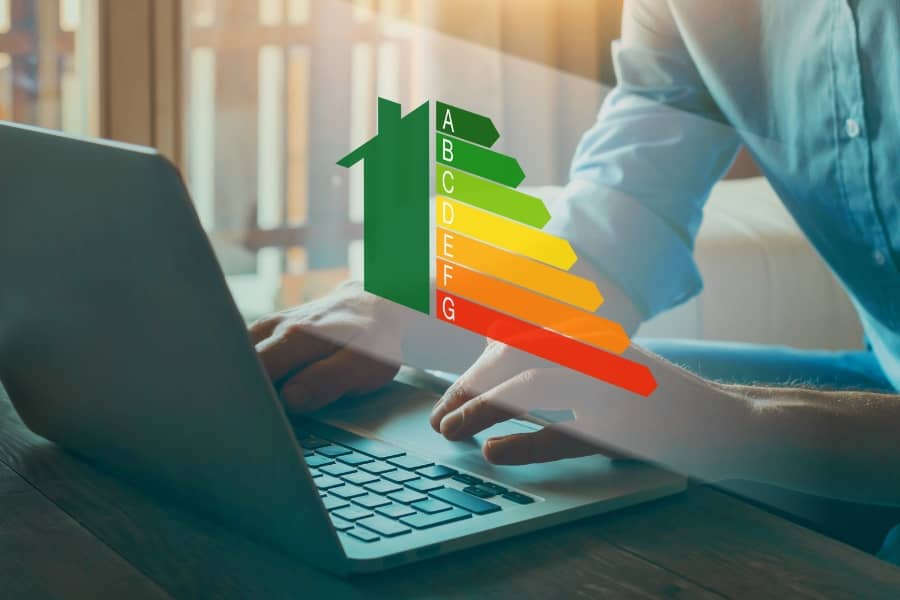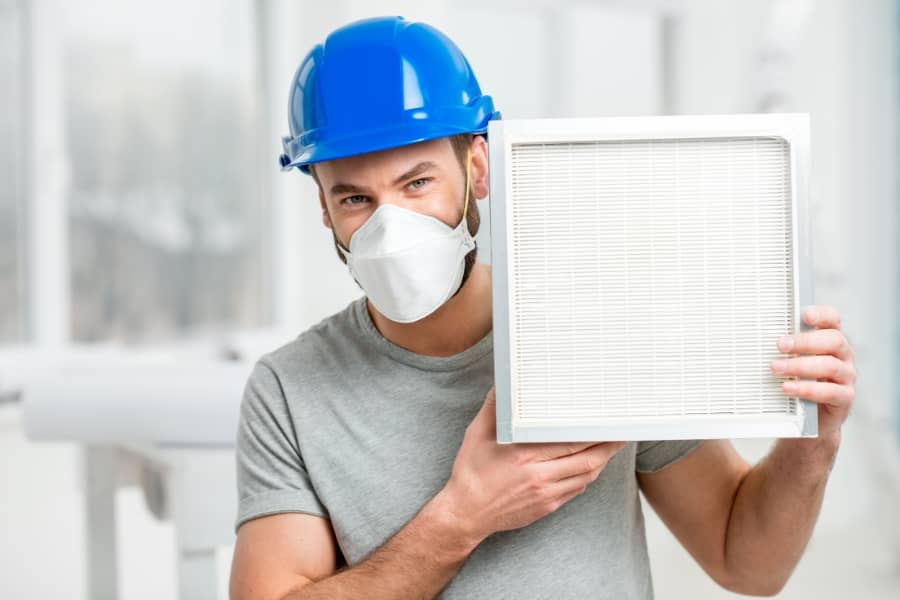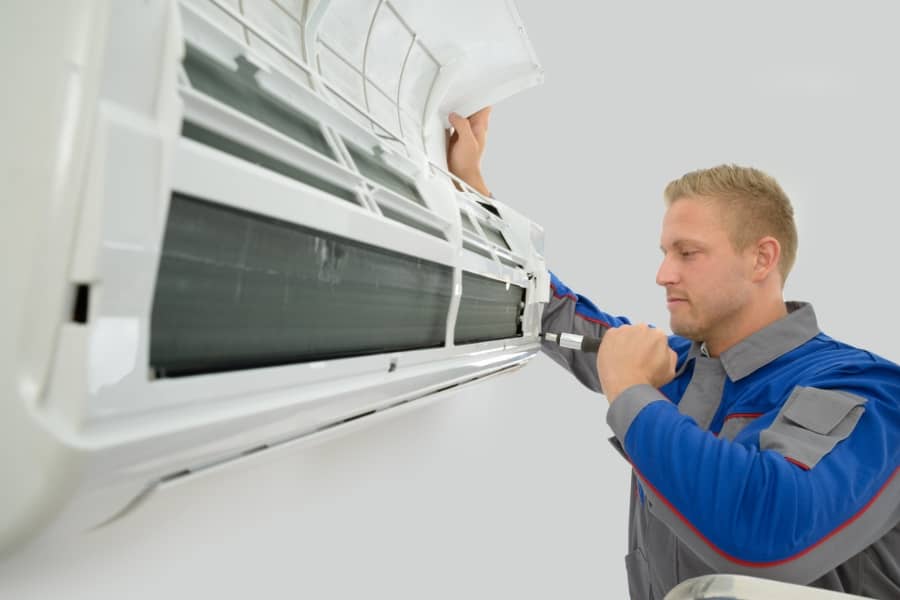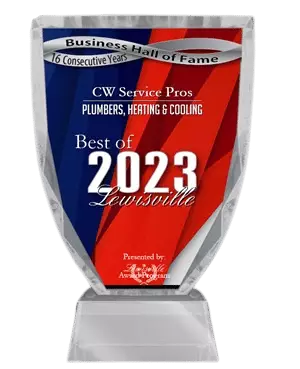Understanding the MERV rating scale can help you choose the best air conditioner filter and improve the air quality in your home.
What Is a MERV Rating?

MERV stands for Minimum Efficiency Reporting Value.
The MERV HVAC air filter rating is a scale that ranks the effectiveness of a filter in removing particulate matter from the air. The higher the MERV rating a filter has, the better it is at filtering the air. The MERV standard was created in the 1980s by the American Society of Heating, Refrigerating, and Air Conditioning Engineers.
MERV ratings rank two different factors that apply to filter effectiveness. They are:
- How effective the filter is at removing large particles that are 1 micron or greater in diameter. Pet dander, pollen, and dust mite feces can all have particles larger than 1 micron.
- Bacteria and viruses, household dust, cooking or tobacco smoke, and even some gases can have particles smaller than 1 micron.
How to Choose the Best Air Conditioner Filter

What MERV Rating Do You Need?
Filters with a MERV rating of 8 to 13 are the best option for most home uses. It can be helpful to choose a filter at the higher end of this range if:
- Anyone in the home has allergies or a respiratory illness
- Your indoor air quality is poor for any reason, like viruses and bacteria or air pollutants like wildfire smoke outside
Choose a filter with a rating that’s appropriate for your home. The higher the MERV rating, the denser the filter is—and the harder the AC unit must work to force air through the filter. Choosing a high MERV filter puts extra strain on the system, meaning it needs more maintenance and may have a shorter lifespan.
The highest MERV rating possible for a filter is 20, but it’s unlikely you’ll need a filter rated higher than 11 to 13 MERV for home use. Filters rating 14 and higher are generally only used in hospitals, laboratories, or industrial settings. Filters with the highest ratings can cause restricted air flow in your unit and are therefore not necessarily the best option for home use.
How Do You Know What Size to Get?
There are a lot of filter sizes to choose from, but don’t let them overwhelm you. The filter you remove from your air conditioning unit should have the size printed right on it. Just get the same size for your filter replacement! If you’re starting from scratch, contact HVAC experts like the ones at CW Service Pros to let you know what size you need.
Should You Choose a Pleated or Non-Pleated Filter?
Filters also come in pleated and non-pleated varieties. Pleats increase the surface area of the filter so it will trap more particles than a non-pleated filter of the same size and thickness. For this reason, CW Service Pros recommends choosing pleated AC filters whenever possible.
What About Filter Thickness?
Most filters range in thickness from one to four inches. The thicker the filter, the more particles it can trap before it needs changing.
However, it’s not always the case that thicker is better. The thicker a filter is, the more force is needed to push air through it. An air conditioning filter that’s too thick can strain the AC system and may shorten its lifespan.
At CW Service Pros, we recommend one-inch filters in most cases, with four-inch filters reserved for the highest-efficiency commercial systems.
How Often Should You Change Your AC Filter?

Changing your AC filter regularly helps keep your indoor air quality at a healthy level. As a rule, you should change your air conditioner filter at least every three months. However, you’ll need to change it more frequently in some circumstances. Depending on your home and needs, you may need to change the filter as often as every four weeks.
You’ll need to change your AC filter more often if:
- You’re running the AC fan a lot. For instance, you’ll likely need to change it more often in summer than spring or fall.
- Anyone in the home has allergies or respiratory problems.
- You have pets, especially dogs, cats, birds, and other indoor animals with either pet hair or feathers.
- Anyone in the home smokes or vapes indoors.
- You live in a dry area with high heat and low humidity. These conditions typically mean more dust and debris get tracked in from outside.
- Your return air vents are near the floor, where dirt and debris are more likely to get in the vents and get caught by the filter. CW Service Pros recommends upgrading your system with a filter grill to help keep debris out of your HVAC unit. We don’t recommend double filters that can strain the system.
- You have carpets. Carpeting is a major trap for dirt, allergens, and other particles. Change your filter more often to keep removing airborne particles.
- You have new carpeting or flooring, which can reduce your indoor air quality if they release volatile organic compounds into the air in your home.
Learn more about how to replace the filter here.
Sign up for automatic delivery of replacement air filters here!
The Right Filter Helps Your Home AC Do Its Job More Effectively
The filter is an essential part of your air conditioning system, especially if you want cleaner air. The filter helps keep your indoor air quality high. Choose the best air conditioner filter for your system and your home’s needs so that your AC works efficiently and effectively for as long as possible. Visit our online store here to set up convenient online ordering and auto-delivery of your filters.
















